When you think about what sort of treats to feed your cat, you likely do not think about vegetables such as asparagus. However, many cats, though they are true carnivores, enjoy snacking on green vegetables.
As a veterinarian, I am often asked what types of human food a cat can and cannot eat during cat well visits. So, can a cat eat asparagus?
Cats can eat asparagus. This yummy green vegetable is not only a favorite of humans, but it also appeals to many of our feline friends. Asparagus is not toxic to cats.
In fact, asparagus can be a healthy snack. It is high in fiber, contains potassium, and has high levels of vitamins A, C, and K.
Is Asparagus Toxic For My Cat?
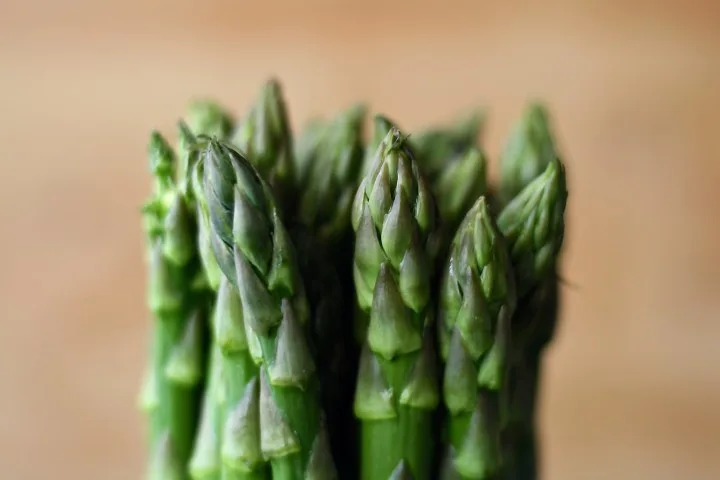 Fortunately, for any cats that love asparagus as much as we do, the answer to this question is “No.” Though asparagus is not toxic, it is not a normal part of a cat’s diet.
Fortunately, for any cats that love asparagus as much as we do, the answer to this question is “No.” Though asparagus is not toxic, it is not a normal part of a cat’s diet.
Cats Are Carnivores
Even though cats live in our homes and like to share our food, they have very different nutritional requirements than humans do.
Cats are “true” or “obligate” carnivores. This means that they should be getting greater than 70% of the calories in their diet from meat.
Cats do not need to eat grains, fruits, or vegetables. This does not mean that cats do not enjoy these foods; however, they do not require them in their diets, and if they consume too many, they can often neglect to eat enough of the nutrients they do need.
The fact that cats are true carnivores also means that cats have an incredibly high protein requirement.
Another pitfall of a cat eating too many non-meat foods is that it may not consume enough of its cat food to fulfill its dietary requirements for protein.
Additionally, cats have a strict requirement for taurine in their diet. They must consume enough of this essential amino acid regularly to stay healthy. Cats cannot make taurine from food as humans and dogs can; it must be included in their diets.
For this reason, cat foods contain high levels of taurine. It is important to note that human food does not have enough taurine to keep a cat healthy. Cats must always be fed cat food specifically designed for cats as their primary diet.
Fun Facts About Asparagus
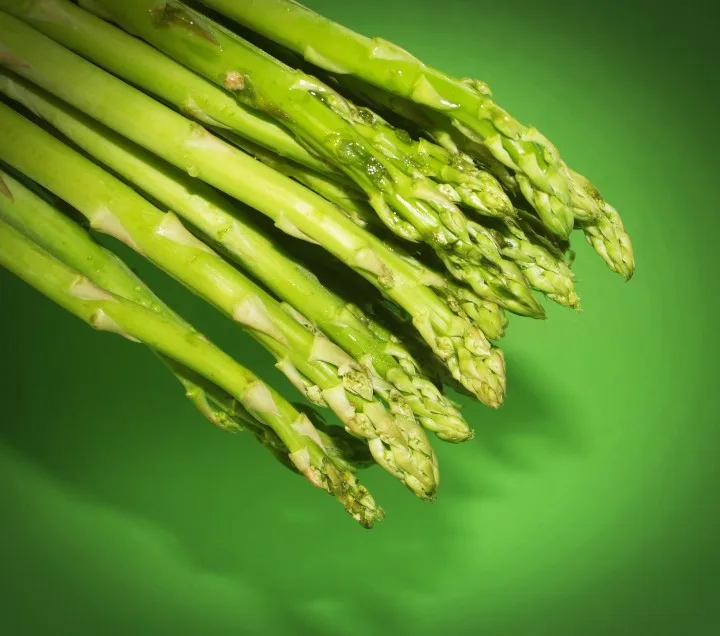 The word “asparagus” is derived from Greek etymology and means “sprout.”
The word “asparagus” is derived from Greek etymology and means “sprout.”
The official scientific name of the asparagus plant is Asparagus officinalis.
Asparagus is actually a very labor-intensive plant to produce. It takes three years to grow a crop of asparagus, from planting to harvesting.
The “Asparagus Capital of the World” is in Oceana County, Michigan. However, the United States is not even in the top five leading countries in terms of asparagus production.
China leads the world in asparagus production, producing approximately 8.3 million metric tons a year. The second leading producer, Peru, comes in at just over 360,000 metric tons a year.
Health Facts About Asparagus
Asparagus is a healthy food, which makes it a superior choice compared to many other cat snacks, such as pizza.
Asparagus contains high levels of fiber, no fat, and low amounts of carbohydrates. It also contains high levels of potassium, folic acid, vitamin B6, and thiamin.
For cats that are overweight or diabetic, asparagus used as a treat can be a way for the pet parent to bond with the cat without adding a lot of additional calories to their diet.
A small bite of asparagus, equivalent to the tip of the spear (or 3.5 g), only contains one calorie.
Can Cats Eat Asparagus?
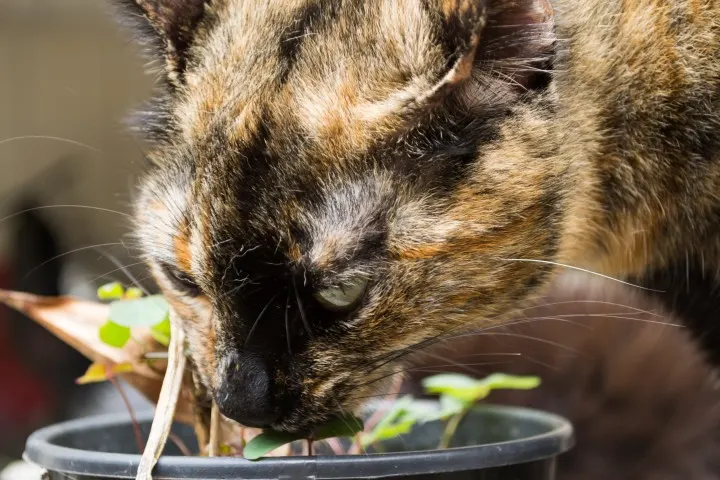 As discussed earlier, cats can eat asparagus; it is not toxic to cats.
As discussed earlier, cats can eat asparagus; it is not toxic to cats.
In fact, in moderation, asparagus can actually be a healthy snack for a cat. Asparagus contains fiber, vitamins, and minerals, as well as a range of antioxidants.
However, it is important to remember that a cat’s body is designed to get all of its nutrition from meat-based sources.
Though asparagus is a healthier snack than many other options, it is unlikely that the cat will be able to utilize many of the healthy things in the asparagus.
Cats must be fed a cat-appropriate diet and not be fed too much of any food that will decrease their appetite to the point that they don’t eat enough of the cat food.
Can My Cat Eat Other Vegetables?
Many vegetables are safe for cats and in moderation, can be a healthy snack for a cat that enjoys them.
Some vegetables that you may have in your kitchen right now that are safe as a treat for your cat are:
- Asparagus
- Peas
- Green Beans
- Carrots
- Broccoli
- Beets
- Sweet Potatoes
There are some vegetables (or fruits that are widely considered vegetables) that should not be fed to cats. These include garlic, onion, and tomatoes. These are toxic and can harm your cat.
Asparagus and Urinary Issues
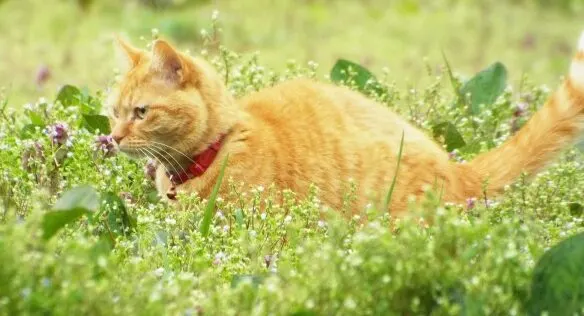 It is a widely known fact that when humans consume asparagus, the smell of their urine quickly changes. Is this dangerous? Does it happen in cats? Is asparagus dangerous to cats with urinary issues?
It is a widely known fact that when humans consume asparagus, the smell of their urine quickly changes. Is this dangerous? Does it happen in cats? Is asparagus dangerous to cats with urinary issues?
Asparagus makes your urine smell because it contains asparagusic acid, which is found exclusively in asparagus. When asparagus is eaten and digested, this acid is dismantled into sulfur-containing byproducts. These substances are responsible for the smell.
There is no research available as to whether or not this same phenomenon occurs in cats, but it is likely that it does.
However, despite the unpleasant smell, there is no adverse effect on the bladder and no reason to avoid asparagus in cats with bladder issues due to this phenomenon.
How To Prepare Asparagus For Your Cat
Raw Asparagus
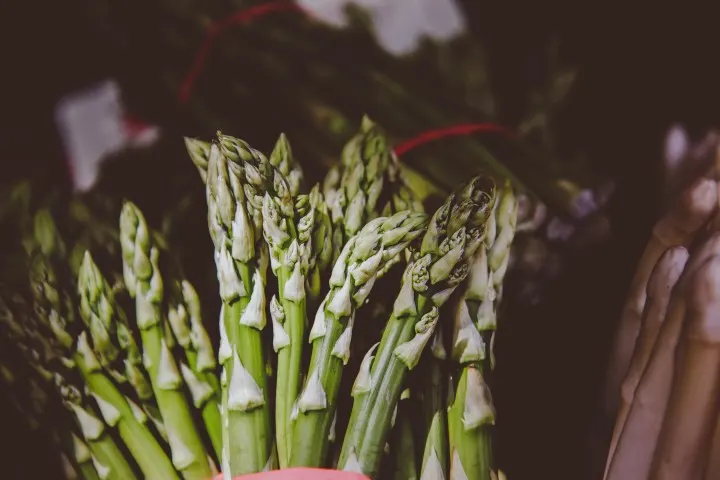 It is safe to feed both raw and cooked asparagus to a cat. However, most cats prefer cooked asparagus.
It is safe to feed both raw and cooked asparagus to a cat. However, most cats prefer cooked asparagus.
Raw asparagus is very tough and fibrous, and most cats will not enjoy any part of the plant raw, with the exception of the tender spear tip.
Cooked Asparagus
Cats, like humans, will likely prefer asparagus if it is cooked. The cooking process will tenderize the vegetable and make it much more palatable.
Steaming or boiling the asparagus will make it more tender for your cat to chew before swallowing.
Even with cooking, most cats will prefer the spear tip over the plant’s more fibrous and tougher stalk. Cooking also adds to the appeal if butter or salt is added for flavor. However, it is essential to remember that garlic and onion are toxic to cats and should be avoided.
All vegetables used as treats for cats should be cut up into small pieces to avoid choking.
Keep in mind that asparagus should only be used as an occasional treat for cats. Too much asparagus (or other treats) may keep your cat from eating adequate amounts of its regular cat food.
Related Questions
Can Cats Eat Asparagus Ferns?
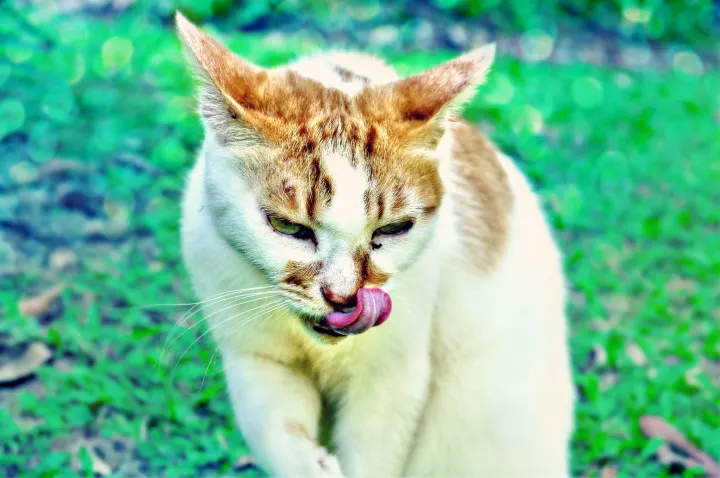 Asparagus ferns share a similar name with asparagus, the vegetable, but in fact, they are not related plants. Asparagus ferns are common houseplants in many homes, however, and are toxic to both dogs and cats.
Asparagus ferns share a similar name with asparagus, the vegetable, but in fact, they are not related plants. Asparagus ferns are common houseplants in many homes, however, and are toxic to both dogs and cats.
This plant is also called an emerald fern or flagstaff fern. It can cause issues if the cat ingests the plant’s berries. The berries contain a compound called sapogenin that causes vomiting, abdominal pain, and diarrhea when eaten.
If the fern itself contacts the skin of the cat, it may cause dermatitis (irritation).
Can cats eat artichokes?
Artichokes, like asparagus, are not toxic to cats.
Artichokes are also a healthier choice than greasy, fatty, or fried snacks as a treat for your cat. They contain lots of fiber, are low-calorie, low-fat, and are high in vitamins.
Due to the shape and structure of fresh artichokes, it is unlikely that a cat will ingest very much of this plant. A small amount of fresh artichoke is an acceptable snack for a cat that will eat it.
However, fried artichokes, artichoke dips, and marinated artichoke hearts should never be fed to a cat. These are at best unhealthy, and in the case of dips and marinated artichoke hearts, contain toxic garlic and onions that can be very dangerous for your pet.
Additionally, if a cat eats too much of a fresh artichoke, they may experience gastrointestinal upset. Artichokes are very high in fiber.
As true carnivores, cats are not able to digest the high levels of insoluble fiber found in plants. This may lead to vomiting, diarrhea, bloat, or abdominal pain.
Can cats eat spinach?
This leafy green seems to be hit or miss with most cats – they either love it or hate it.
Cats can eat spinach; it is not toxic for cats. However, as discussed previously, cats do not require plants in their diet, so spinach should be fed sparingly to cats.
If you are sharing your salad with your cat and they are eating fresh spinach leaves, make sure that they are not also ingesting onions from the salad or any salad dressing or toppings that could be toxic.
In the case of cooked spinach, ensure that nothing toxic is cooked into the spinach dish or used to top it as a sauce.
Dr. Jamie Whittenburg is a vet with 15 years of clinical experience. She graduated from Kansas State University College of Veterinary Medicine in 2006. Her area of expertise is small animal general practice, equine practice, surgery, and academia.
Dr. Whittenburg operates her own hospital in Lubbock, TX, named Kingsgate Animal Hospital. Medically, she’s most interested in practicing general surgery and feline medicine. When not at work, Dr. Whittenburg enjoys outdoor activities, reading, and spending time with her family.

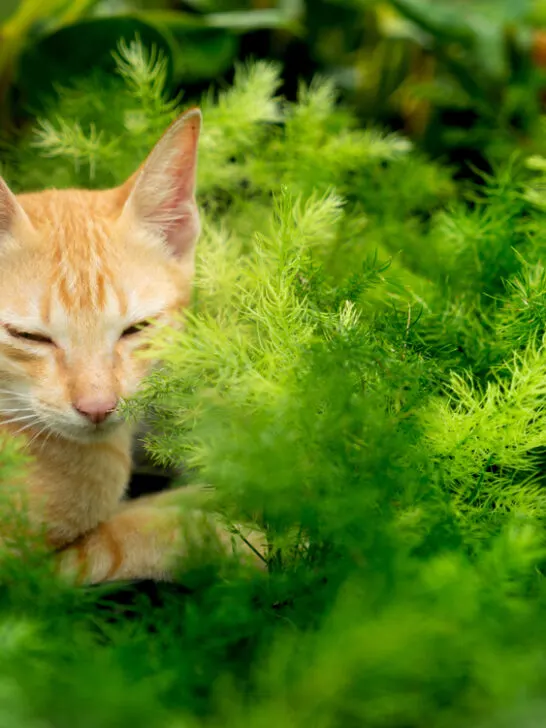

Leave a comment
You must be logged in to post a comment.